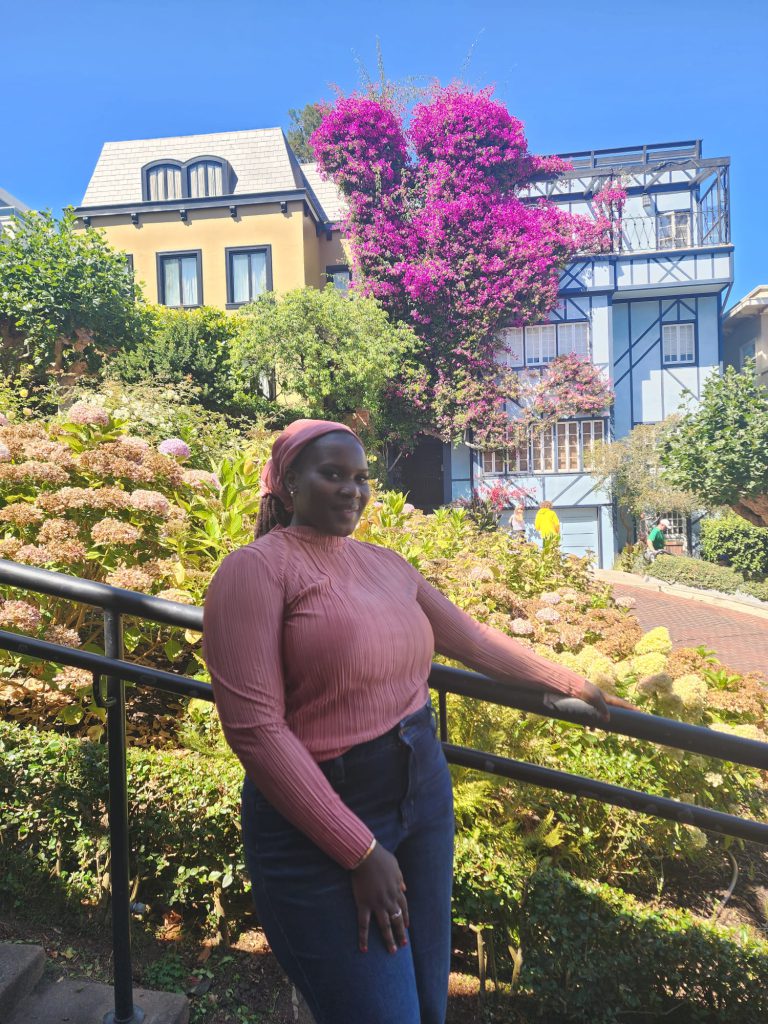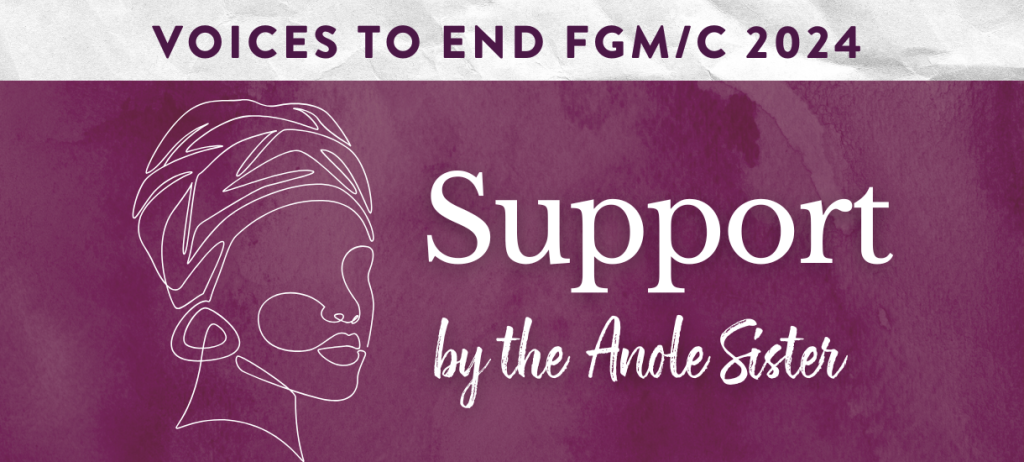The Washington Coalition to End Female Genital Mutilation/Cutting Interview Series: Amie Kujabi

By: Sara Khattak Recently, policy interns at Sahiyo have been interviewing members of the Washington Coalition to End FGM/C to learn more about coalition member’s important work toward creating policy on female genital cutting (FGC). Sahiyo’s policy intern, Sara Khattak, talked to coalition member Amie Kujabi, a prominent advocate in the work to end FGC. Amie Kujabi, originally from The Gambia, has been involved in working to end violence against women since she was a teenager. Her personal experience as a survivor of female genital mutilation/cutting (FGM/C), has shaped her path as an advocate. Amie’s involvement with the Washington State Coalition began in late 2022, when her friend and former colleague Absa Samba introduced the group to her. Amie’s role within the coalition took on new significance when she gave testimony during hearings for Senate Bill 5453, which aimed to end FGM/C in Washington State.Amie believes that survivors’ testimonies are crucial in the policy-making process. “When you look at it, there are people that have been affected by this harmful practice, and sharing your story also boosts the importance of why certain policies or actions need to be taken.” By putting a face to the issue, survivor’s stories help lawmakers and the public understand that FGC is not just a theoretical problem but a real threat affecting lives in their communities. While Amie has received overwhelming support for sharing her story, she’s also faced some challenges from those trying to justify the practice. She emphasizes the importance of education and awareness, noting that many people, including some from practicing communities, don’t fully understand the harmful effects of FGC. Amie has observed significant progress in the work to end FGC, particularly in her home country of The Gambia, as well as other African nations. She credits much of this progress to young people taking the lead in advocacy efforts against the practice. “Young people of our generation are actually taking the lead in trying to speak out and advocate for policy change… I believe that has really impacted where we are today.” Amie stresses the need for strong, comprehensive policies that address both prevention and response. She emphasizes that laws against FGC not only protect those at risk but also provide avenues for survivors to share their stories and access necessary services. “Both those at risk and the survivors have a huge advantage to benefit from the existence of these laws.” She highlighted the need for services like counseling and therapy for survivors, as well as education to combat misinformation rooted in cultural or religious beliefs about FGC. Amie encourages more people to get involved in the work to end FGC, whether they’re survivors or not. “You don’t have to be a survivor to join the cause.” She calls for greater collaboration and networking among organizations, recognizing that the issue of FGM/C intersects with many other social and health concerns. For those considering sharing their own stories, Amie acknowledges the courage it takes but also the potential impact that survivors’ stories can have. “It takes a lot of courage and discernment,” she said, advising individuals to engage only when they feel comfortable and safe to do so. As we continue the work to end FGC, Amie’s parting message emphasizes the need for comprehensive support for survivors: “Prevention is important, responding is important, but the provision of services is equally important for survivors.” By ensuring access to professional support services, we can encourage more survivors to come forward and join the cause. Amie Kujabi’s story is a powerful reminder of the impact one voice can have in the movement to end FGC. Through her advocacy and courage in sharing her personal experience, she is helping to shape policies and change lives. As we move forward, let us heed her call for greater involvement, improved services, and continued dedication to ending this harmful practice. We extend our gratitude to Amie for her invaluable contributions and insights. To learn more about our ongoing work and other interviews, visit Sahiyo’s website. To learn more about Amie and her journey, watch the video below. [youtube url=”https://www.youtube.com/watch?v=N9qHrN_nbMQ “]
Support

By The Anole Sister Being an Anole Sisters member, I am an FGM/C survivor. For the past four decades, I have lived with this experience. Since 2015, I have been advocating for and raising awareness about FGM/C along with other survivors, women, and girls at risk. However, I had never shared my story publicly until I joined the Sahiyo Voices to End FGM/C workshop in 2024. At the workshop, I created a video and shared a story from my childhood that had been buried deep within me. This act of sharing not only inspired me but also resonated with many in the audience, breaking a long-held silence. Now, I feel much more empowered to encourage others to share their stories, to let go, and to continue advocating against FGM/C. I used to be nervous about sharing my story with other people, but not anymore. I love my story, that’s why I chose to tell it and attend the workshop. I also wanted to attend the workshop so that I could hear other people’s stories, and so that we could learn from each other. I want my story to bring awareness to the issue and to the community. I also want people who don’t know about the practice to learn more about FGM/C, so more people might share stories that are similar to mine. In this workshop, I really enjoyed learning, and listening to all the stories of the other participants, each of which are different and important. My advocacy is something that will never stop. We still have a lot of sisters who have been through this practice. I want to help them speak about that and encourage others to share their experiences too, so that people can learn about FGM/C. I also want to continue my advocacy because I want this program to continue. There are a lot of sisters back home who have never shared their stories and it’s very important for them to come together and learn from each other. My story is my own, and no one can hold me back from sharing it. [youtube url=”https://youtu.be/bBbkAifSj5A”]
